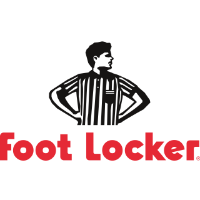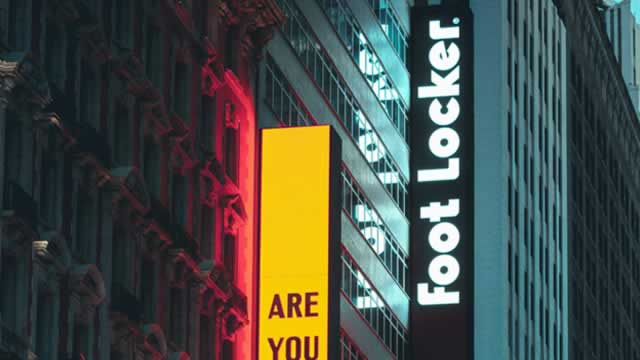
FL
Foot Locker, Inc.
$24.01
-0.09
(-0.37%)
| Exchange: | |
| Market Cap: | 2.295B |
| Shares Outstanding: | 127.536M |
About The Company
| Sector: | Consumer Cyclical | |||||
| Industry: | Apparel – Retail | |||||
| CEO: | Mary N. Dillon | |||||
| Full Time Employees: | 13140 | |||||
| Address: |
|
|||||
| Website: | https://www.footlocker-inc.com |
Foot Locker, Inc., through its subsidiaries, operates as an athletic footwear and apparel retailer. The company engages in the retail of athletic footwear, apparel, accessories, equipment, and team licensed merchandise under the Foot Locker, Lady Foot Locker, Kids Foot Locker, Champs Sports, Eastbay, atmos, WSS, Footaction, and Sidestep brand names. As of January 29, 2022, it operated 2,858 retail stores in 28 countries across the United States, Canada, Europe, Australia, New Zealand, and Asia; and 142 franchised Foot Locker stores located in the Middle East and Asia. The company also offers its products through various e-commerce sites and mobile apps. Foot Locker, Inc. was founded in 1879 and is headquartered in New York, New York.
Click to read more…
Revenue Segmentation
EPS
Earnings Call
Income Statement
(* All numbers are in thousands)
Balance Sheet
(* All numbers are in thousands)
Cash Flow Statement
(* All numbers are in thousands)
Analyst Estimates
(* All numbers are in thousands)


